We are on the verge of commemorating the 8th of March, a date that constitutes a turning point for those of us who exercise the noble task of educating with the firm commitment to generate spaces for overcoming the inequalities and inequities that have been produced by the hegemonic prolongation of the patriarchy and where we perceive education as our indissoluble ally to build societies that overcome the vicissitudes marked by discrimination, opprobrium and violence.
We begin by sharing with our readers that the first recommendation for this upcoming 8M is to modify the mistaken perception of the date as a celebratory event, nothing could be further from the origin and purpose of the day. What the UN intended in 1975 at the First World Conference on Women in Mexico City was the institutional pillar or, if you will, the specific roadmap to work jointly for the dignity in conditions of equality that had been requested for centuries and for which hundreds of women had offered their lives.
The three goals set by the UN were as follows:
1. Full gender equality, and the elimination of gender discrimination, especially in the field of education.
2. The integration and full participation of women in development.
3. The need to contribute increasingly to the strengthening of world peace.
During 8M it´s critical to remember the importance of women’s struggle for equal rights, among them we remember the path taken towards social, educational, employment and opportunity equality, which has raised awareness to uproot violence, injustice and male chauvinism from the population.
In the following link you can take a historical tour of the date. Don’t miss it!
https://www.ngenespanol.com/traveler/la-dolorosa-historia-detras-del-dia-internacional-de-la-mujer/
https://www.youtube.com/watch?v=OGzRjY_CLlU&ab_channel=UNWomen
So, what should be done, for the commemoration?
From the perspective of deconstruction, we recommend keeping in mind the following suggestions put forward by UN Women, colectivas and/or feminist groups and, of course, our own:
-Let’s not congratulate women, nor give flowers. March 8th is a day to reflect, to remember those who have fought for the cause before us, if you want to exercise in knowledge, magnify from the design the courage and life of women who have preceded us, find a quotation and send it as an e-card, it will serve as motivation.

-The fact that today we have access to education does not mean that we forget the winding road we have travelled to remain on it. This is why the reality of our present is due to the sacrifice of many in the past; we cannot forget this, and we must honour it, not as a momentary issue, assigning to fashion the positions of those of us who recognise ourselves as independent, autonomous, and free. We recommend researching, reading, and making working tables associated with the rights acquired by women over the centuries, this activity will allow us to build a plexus of possibilities to intervene, depending on the shortcomings found in the territories.
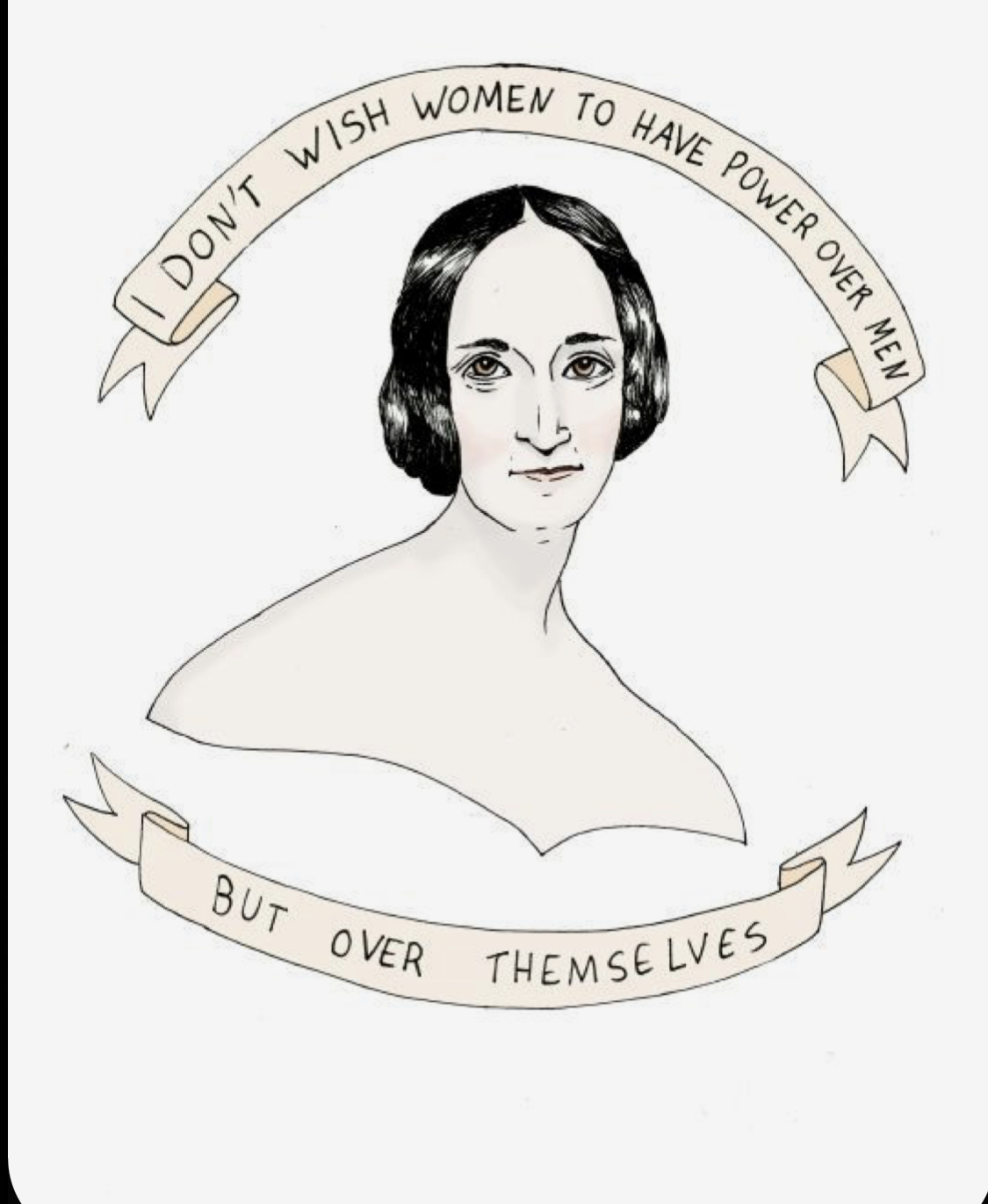
–Let us not reduce women’s achievements to motherhood or their importance in housework. We must keep in mind that it is important to value all women in their diversity, and commemorate the results of interactions from the human kaleidoscope, because differences nourish and enrich us.
-Let us promote the continuous development of women’s rights. It´s paramount to support the overcoming of standards and stereotypes that incite violence through co-responsibility and tripartite partnership: State, Society and family.
-The role of education in its different levels must continue to be a leader and model of respect, therefore working on prevention is already an action, let us exercise from our global citizenship embracing peace, justice and equity.
Remember the real reasons for 8M!
Below, we share with you in the following infographic some important facts and events… these are not all…. we invite you to write in the comments the ones you believe missing.
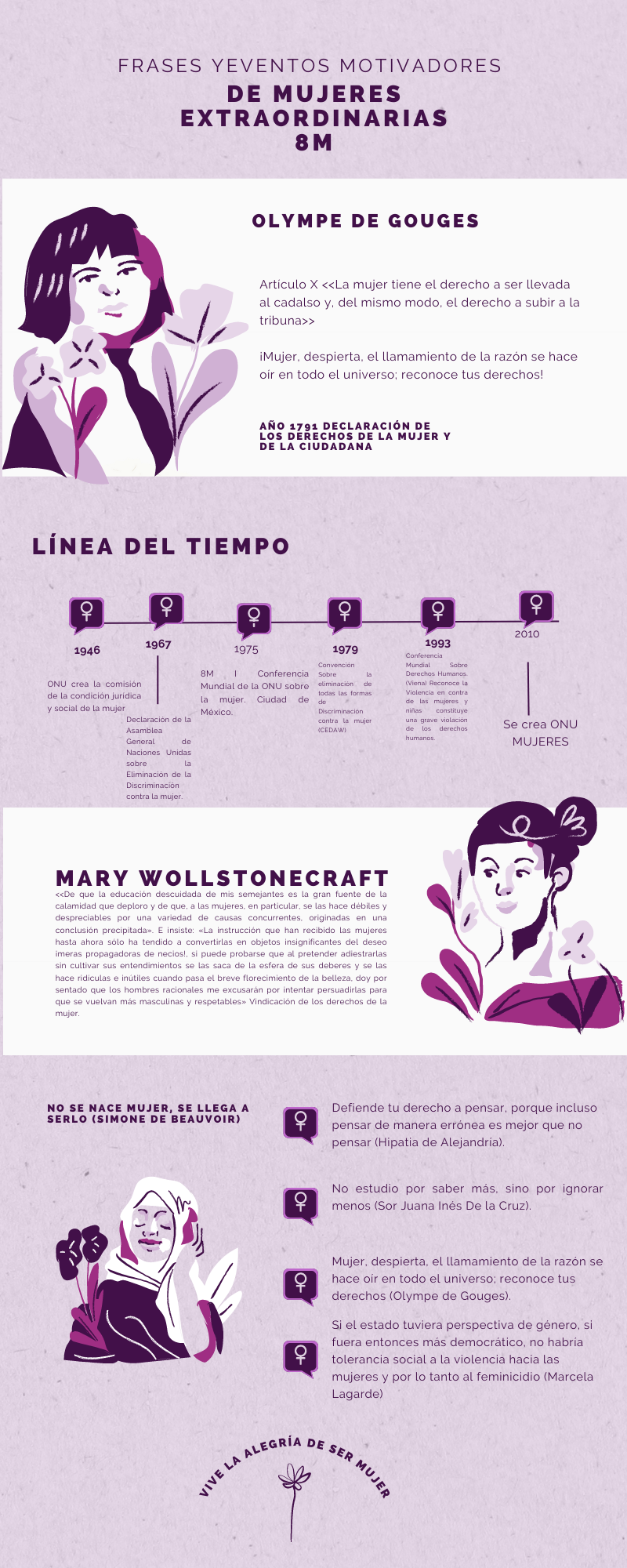
P.S. This month all my BLOGS will be purple, i.e., women’s issues =)
Thanks for reading me, until the next purple lines!
Recommended2 dieron "Me gusta"Publicado en Antropología y Género, Derecho, Derechos Humanos, Educación, Género, Humanidades




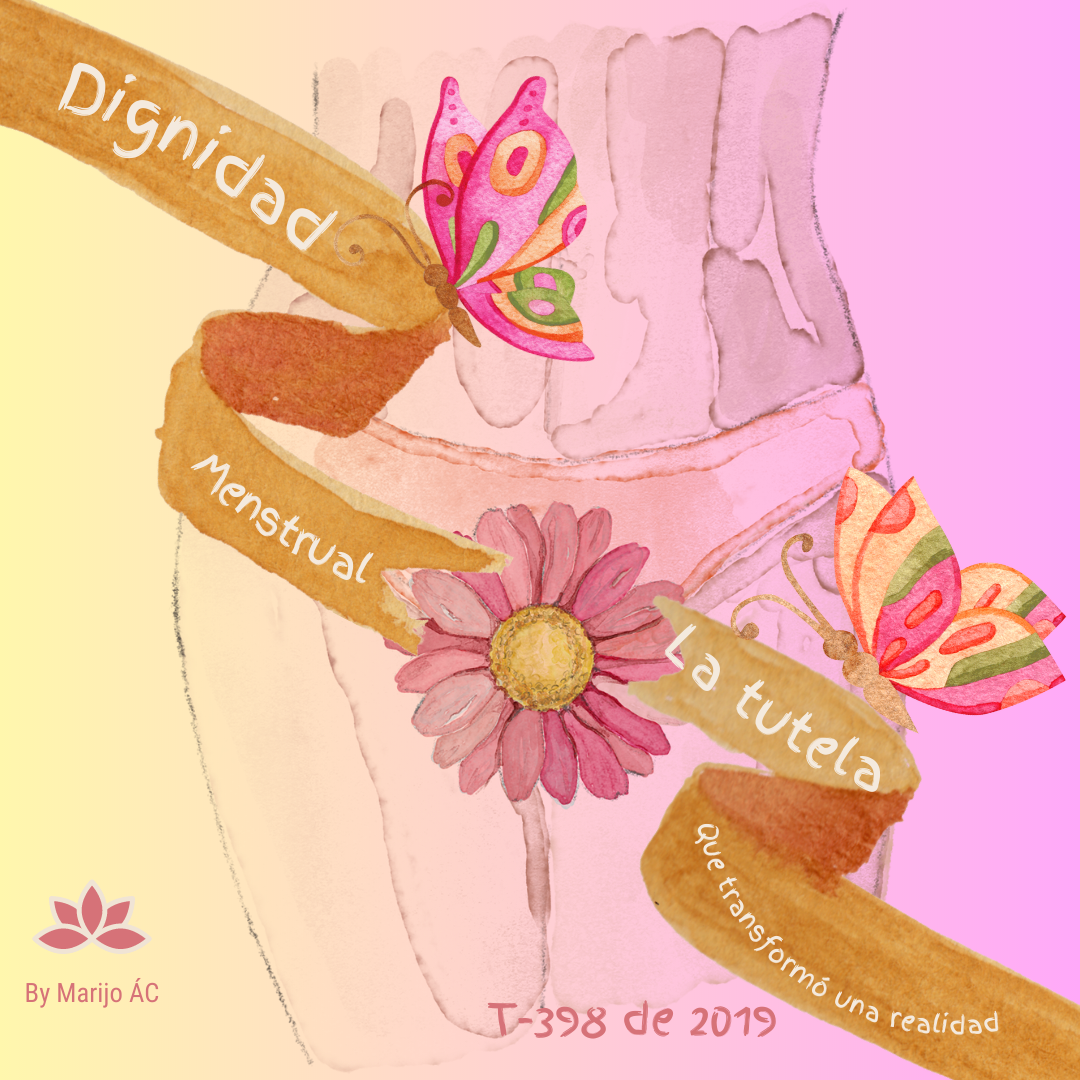
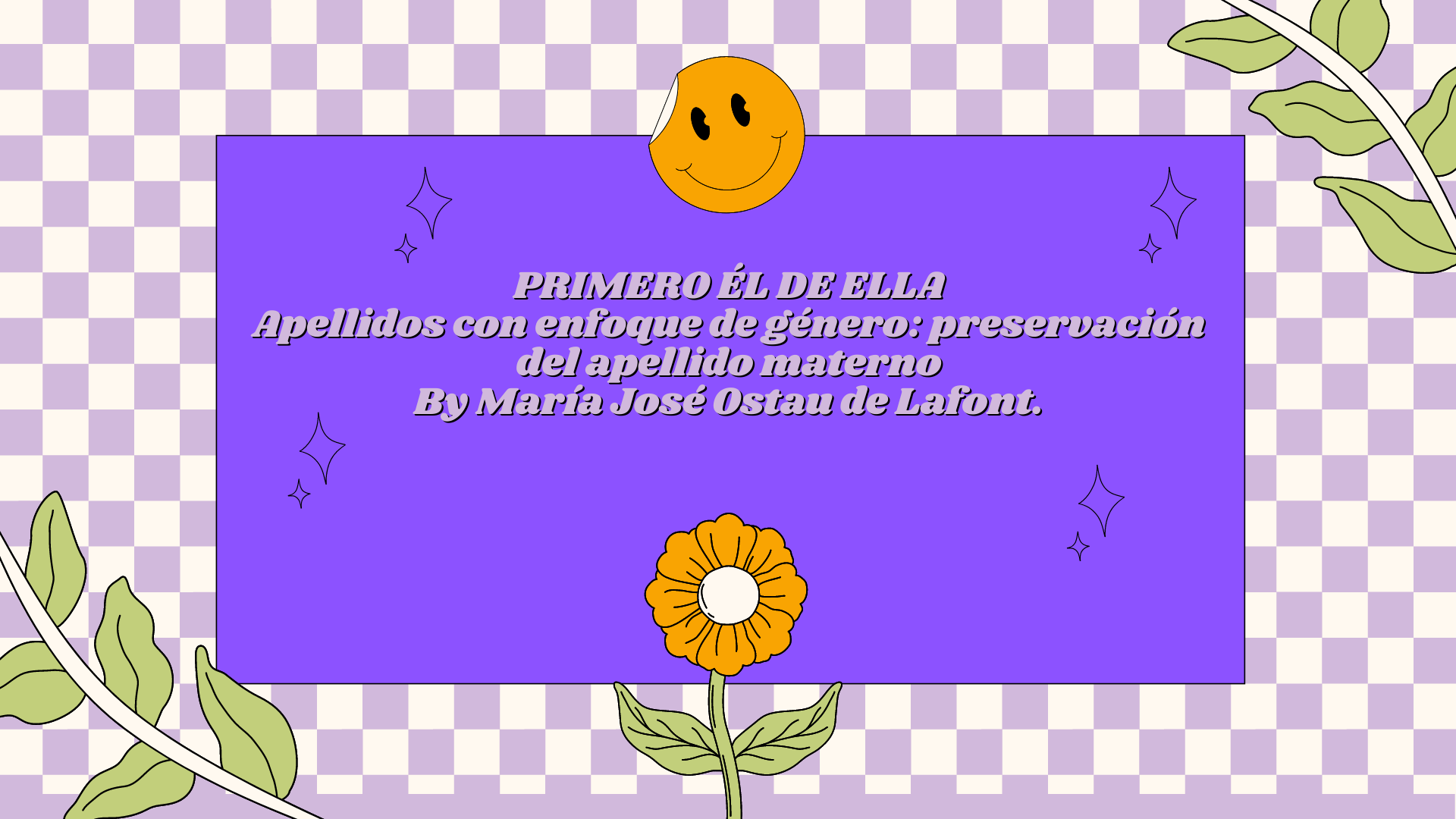
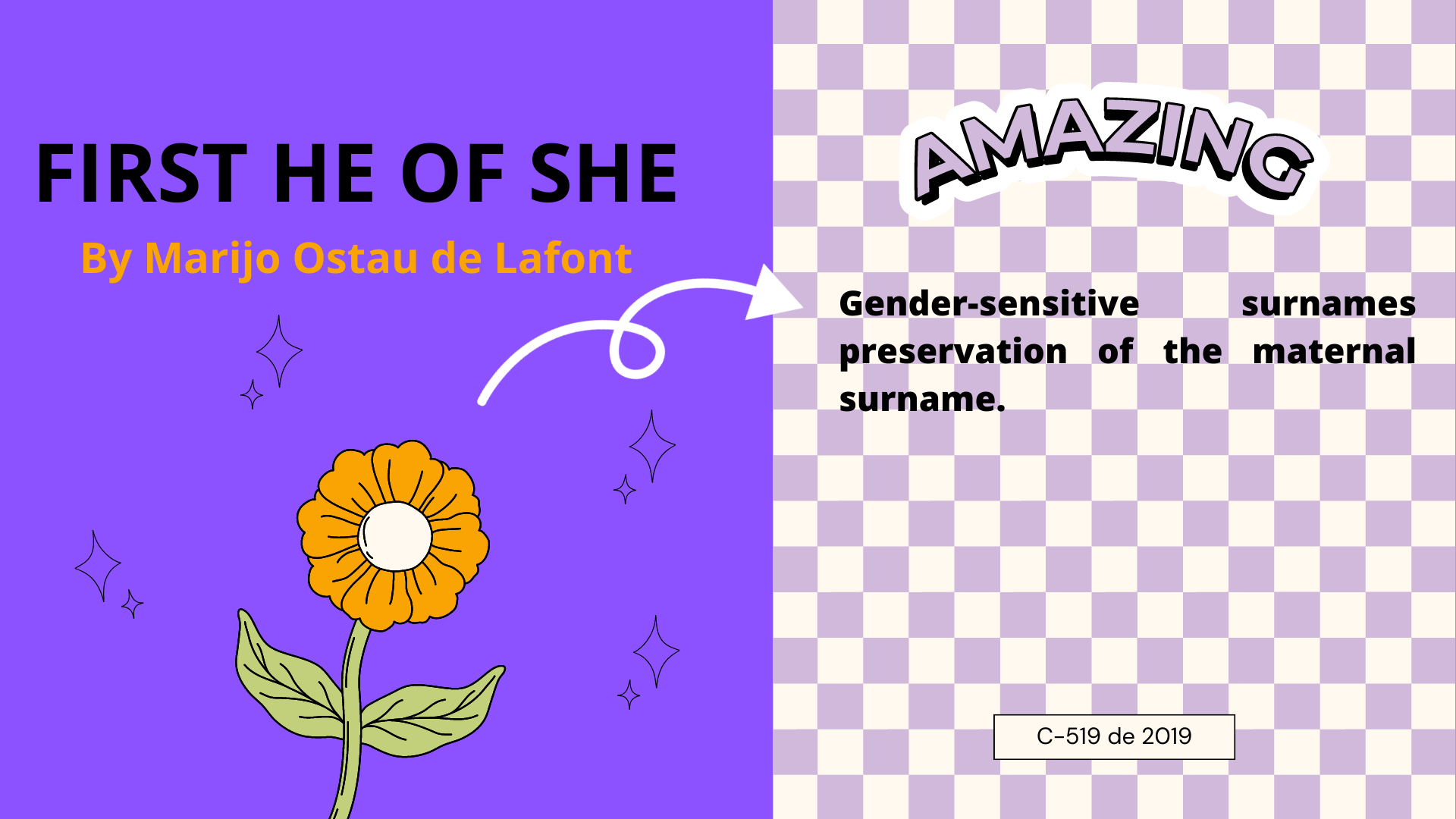

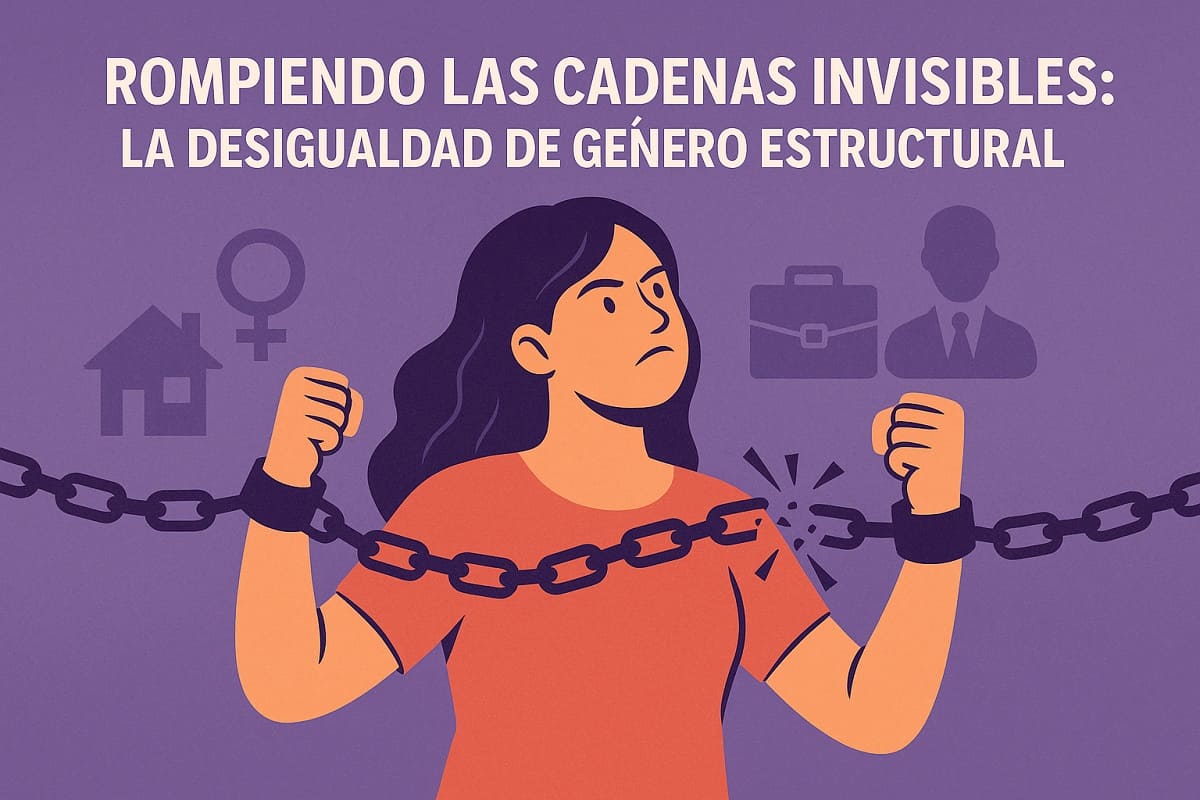

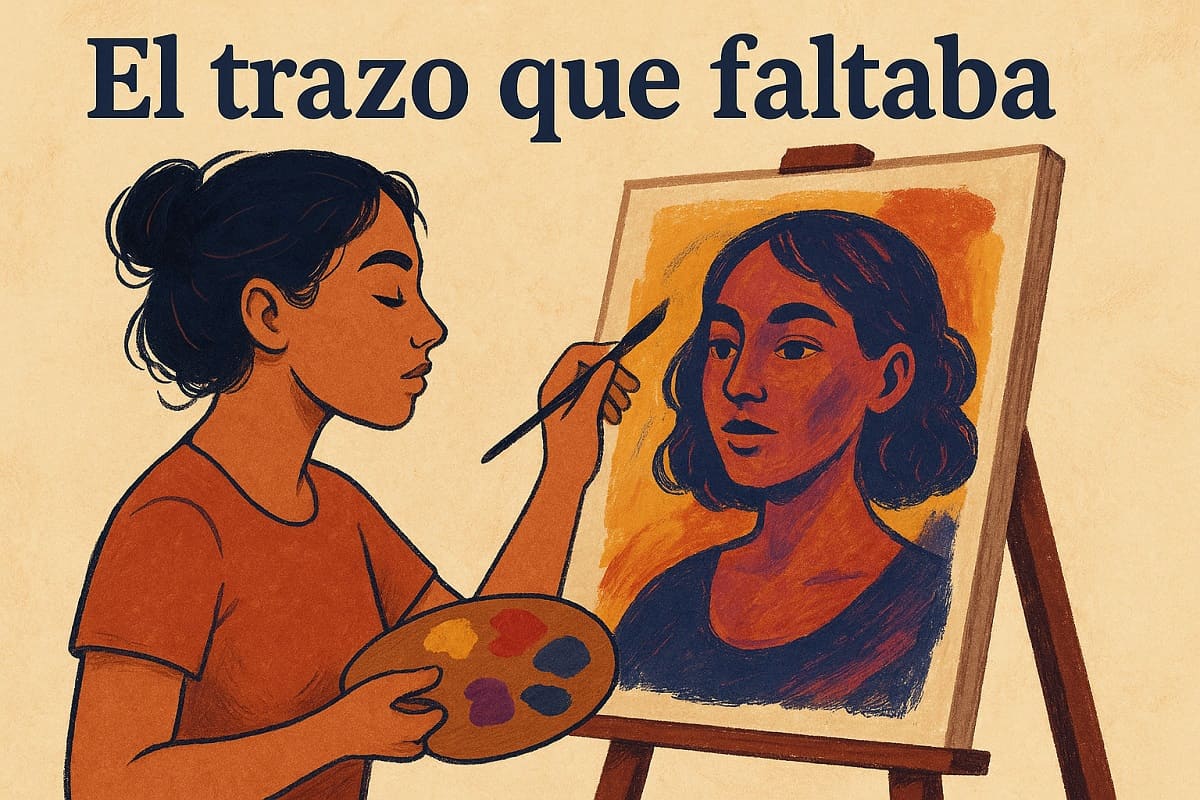



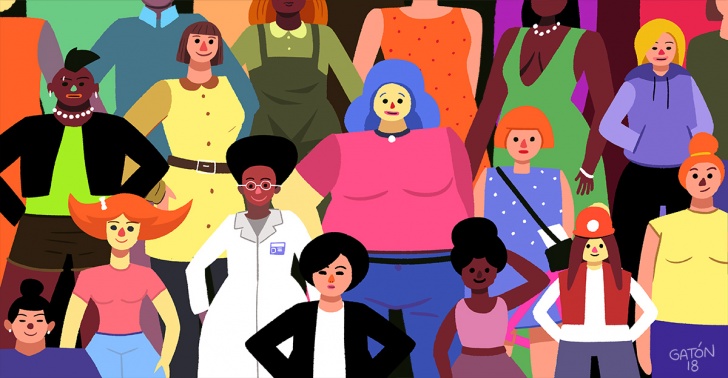









Comentarios